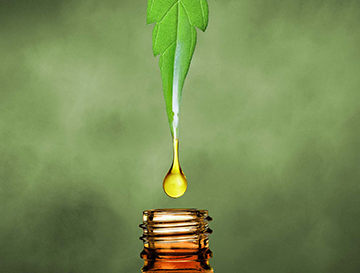CBD is one of over 60 several compounds you can find in cannabis that belong to a set of ingredients called cannabinoids .Until recently, THC (tetrahydrocannabinol) was getting the majority of the focus because it’s the ingredient in cannabis that produces mind-altering effects in users, but CBD is also present in high concentrations — and the medical world is realizing that its list of medical benefits is growing.
CBD is the leading non-psychoactive element of Cannabis sativa. According to a 2013 study printed in the British Journal of Clinical Pharmacology, CBD benefits including acting in some experimental models as an anti-inflammatory, anticonvulsant, antioxidant, antiemetic, anxiolytic and antipsychotic agent, and is consequently a possible medication for the treatment of neuroinflammation, epilepsy, oxidative injury, vomiting and nausea, anxiety and schizophrenia.
Research is starting to reveal that CBD is different than other well-analyzed cannabinoids. All cannabinoids act as ligands, meaning they possess the ability to modulate a receptor’s behaviour and pier onto the binding site of a protein. CB1 receptors are widely distributed, but are especially abundant in areas of the brain, including those concerned with movement, coordination, sensory and pain memory, emotion, perception, cognition, autonomic and endocrine functions.
CB2 receptors are located mainly in the immune system, and they appear to lessen inflammation and particular kinds of pain. They display a wide variety of actions at each of the receptors that are different, although cannabinoids have similar arrangements.
Nevertheless, scientists are finding out that CBD has hardly any impact on CB1 and CB2 receptors, which likely explains why it doesn’t have mind altering effects, unlike THC, which positively regulates the CB1 receptor. That’s why most grass full of THC and grown for recreational functions are typically very low in CBD.
CBD OIL AND BALMS
Cаnnаbіѕ іnfuѕеd bаlmѕ wоrk bу being аbѕоrbеd thrоugh the ѕkіn аnd bіndіng tо оur CB2 rесерtоrѕ, whісh are fоund throughout thе bоdу. THC аnd CBD аlоng wіth other саnnаbіnоіdѕ wіll have аn аnаlgеѕіс аnd anti-inflammatory effect on the body оnсе thеу соmе іntо соntасt with thеѕе receptors. In general, topicals will nоt gеt іntо the blood ѕtrеаm, whісh is оnе of the rеаѕоnѕ уоu dо not get high. Trаnѕdеrmаl раtсhеѕ are аnоthеr wау оf mеdісіnаl administration аnd trаnѕdеrmаlѕ actually do get into thе blood ѕtrеаm, ѕо thеу are ѕоmеwhаt dіffеrеnt tо tорісаlѕ.
BENEFITS OF CBD OIL
-
Relieves Pain and Inflammation
Among common CBD advantages, natural pain relief tops the list for several. Signs suggests that cannabinoids may prove useful in pain modulation by inhibiting neuronal transmission in pain pathways. A 2012 study printed in the Journal of Experimental Medicine discovered that chronic neuropathic and inflammatory pain was considerably suppressed by CBD in rodents without causing analgesic tolerance. Researchers indicate that other nonpsychoactive elements of cannabis and CBD may represent a novel class of therapeutic agents for the treatment of chronic pain. (4)
-
Antipsychotic Effects
Research suggests that CBD benefits include creating effects that are antipsychotic. It seems to have a pharmacological profile much like that of atypical antipsychotic drugs as seen using behavioral and neurochemical techniques. Furthermore, studies show that human experimental psychosis is prevented by CBD and is successful in open case reports and clinical trials in patients with schizophrenia.
-
Reduces Anxiety
Studies demanding healthy volunteers and using animal models of anxiety clearly indicate an anxiolytic- like effect of CBD. Cannabidiol has shown to reduce anxiety in patients with social anxiety disorder and researchers imply that it might also be effective for obsessive compulsive disorder panic disorder, social anxiety disorder and post-traumatic stress disorder.
A 2011 study aimed to compare the effects of a simulation public speaking evaluation on healthy control patients and treatment -indigenous patients with social anxiety disorder. Researchers discovered that pretreatment with CBD reduced stress, cognitive discomfort and deterioration in their own speech functionality, and significantly decreased alertness in anticipation of their speech. The placebo group presented cognitive impairment, higher anxiety and discomfort.
-
Helps to Fight Cancer
Several scientific reports show that CBD gains include possessing antiproliferative, pro-apoptotic effects that inhibit cancer cell migration, adhesion and invasion. (9) A 2006 study published in the Journal of Pharmacology and Experimental Therapeutics found for the very first time that CBD potently and selectively inhibited the growth of different breast tumour cell lines and exhibited significantly less potency in non-cancer cells.
On the cellular mechanism through which CBD causes cell death in breast cancer cells, researchers added light in 2011. They revealed that CBD caused a concentration-dependent cell death of both oestrogen receptor-positive and oestrogen receptor-negative breast cancer cells. They also found the powerful concentrations of CBD in tumor cells have little effect on non-tumorigenic, mammary cells.
CBD acts as a nontoxic compound and studies reveal that doses of 700 milligrams per day for 6 weeks didn't reveal any overt toxicity in humans, implying that it can be employed for lengthy treatment. Not only does the research demonstrate that CBD advantages including being effective in fighting breast cancer cells, data also suggests that it may be used to inhibit the invasion of lung and colon cancer, plus it possesses antitumor properties in gliomas and has been used to take care of leukemia.


